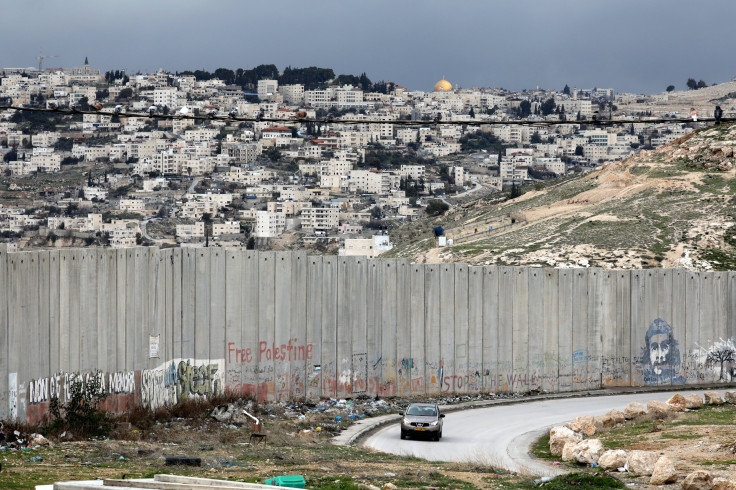Israel Demolishes Palestinian Homes ‘Too Close To’ West Bank Barrier

Palestinians looked on helplessly as Israeli forces tore down their homes with bulldozers, deemed as a security risk for being too close to the Israeli separation wall at the West Bank border.
Last month, the Israeli Supreme Court had ended a seven-year legal battle by ruling in favor of the military to demolish the houses in Wadi Al Hummus, part of the Jerusalem suburb of Sur Baher. This village was captured and occupied by Israel during the 1967 war.
The military had fought the legal case claiming the houses were too close to the separation barrier, which divided Israel and the occupied West Bank, breached the building ban and posed a security risk.
The Palestinian Liberation Organization in a tweet said occupants of the houses were woken up around 3 a.m. by the Israeli forces and told to move out. “Preparations started past midnight as hundreds of armed Israeli occupying soldiers/bulldozers stormed the town,” it said.
Ongoing: Demolitions in #SurBahir started early this morning with four houses at once. Preparations started past midnight as hundreds of armed Israeli occupying soldiers/ bulldozers stormed the town. Families threatened with demolitions were woken up/ moved out of their homes. pic.twitter.com/Xdu7tiJnGn
— Palestine PLO-NAD (@nadplo) July 22, 2019
Displaced residents, now left in fear and in financial straits, cried foul as they had spent their life savings into the buildings. Ali Al Obeidi, the chairman of the Wadi Al Hummus Committee, described the demolishment as mass displacement of the people living in Wadi Al Hummus, despite the legal and diplomatic attempt to protect their property. Moreover, under the 1993 Oslo Accords, most of the buildings in Wadi Al Hummus neighborhood are meant to be under the Palestinian Authority and civilian control.
Activists claimed that Israeli soldiers placed dynamite on every floor of the houses and forced the people, some also required treatment at the hospital. According to The National, a British activist relayed that they stayed in the building and witnessed buses and buses of soldiers arriving on a scale he had never seen before.
“Four of us went into the bathroom. There were Palestinians, some elderly, in the building. We heard massive bangs and we were all pretty scared,” she said. The activist also witnessed Israeli soldiers throwing tear gas canisters inside the bathroom and locking the door. “They began to drag us violently, regardless of safety or policy,” she said.
However, this isn’t an exceptional Israeli action, reports stated that Israeli has frequently torn down Palestinian buildings, declaring it built illegally in East Jerusalem and Area C. Israeli Internal Security Minister Gilad Erdan defended Israel’s actions saying the Palestinians are making their own law by constructing these buildings.
Erdan said there are hundreds of such illegal structures. “To my regret, there is no sufficient governance there. But it is not just that there are hundreds of structures there, several dozens of them sit almost on the route of the separation fence, endangering the security forces that operate there,” he said.
A lawyer from the Palestinian rights group, Al Haq, Dalia Qumsieh said Israel has always maintained destructive policies on Palestinian property and homes throughout the occupied Palestinian territories and on both sides of the Green Line, the “pre June 1967” line that excludes the West Bank, Gaza, East Jerusalem, and the Golan.
“The case of Sur Baher represents the physical translation of the culture of impunity that prevails,” Qumsieh said. She further said the demolitions were part of a multi-layered situation of mass human rights violations which included the unjustified military destruction of property.
© Copyright IBTimes 2025. All rights reserved.





















